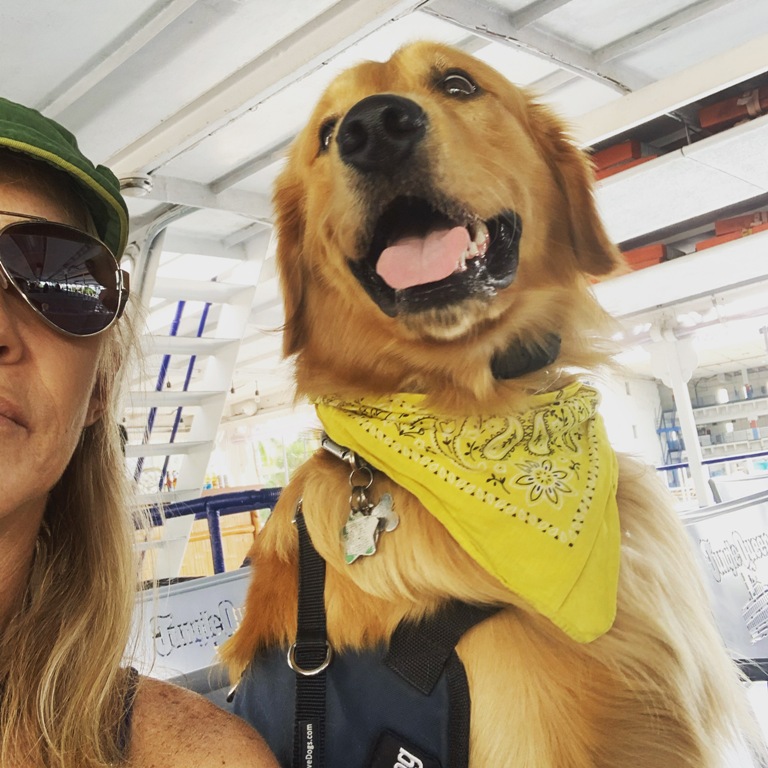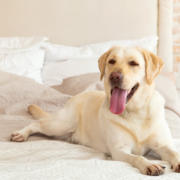NEW PUPPY CHECK LIST
VETRINARY INFORMATION:
Within 3 business days of purchase, you must take your puppy to your Veterinarian of choice for a second wellness check, including a fecal examination for parasites. Please bring your puppy’s folder, and have your vet confirm the microchip number while you are there.
Additional required vaccination shots:
- 8 week old – “5 way” vaccination shot (Your puppy has already received their first “5 way” vaccination at 6 weeks old. Documentation for your vet is inside the cover folder).
- 12 weeks old – “9 way” vaccination shot.
- 4-6 months old – Rabies vaccination shots.
Please complete and submit your American Kennel Club (AKC) registration paperwork as soon as possible. Their website (www.AKC.ORG) has recently been upgraded, and has a wealth of information! Sign up for ’My AKC’ while there.
Note: We have already microchipped your puppy, and the information (your contact information as owner, and our contact information as additional emergency contact) will be entered into the AKC Reunite data base (#1 data base for locating owners of lost/stolen dogs). We have already paid for this for the lifetime of the dog, no need to re-register every year. The number is located several places on your puppy’s paperwork/file folder.
Your County likely requires a dog license registration (Brevard County) Yearly licensing fees here are $18.00. When your vet gives the rabies shot you will register your dog with Brevard County.

FEEDING AND NUTRITION:
Currently, the puppies are getting apx. 1/6 of a can of Purina Pro Plan Focus Classic Puppy Chicken & Rice (never any ‘grain free’), mixed with apx. 2/3rds to 1 of a standard coffee mug of Royal Canin Golden Retriever Puppy or Science Diet dry food (and a little warm water), twice a day. If they eat it all and are looking for more, increase some dry food for the next meal. As they grow, increase both canned and dry food accordingly. This can get up to ½ can and 1 & 1/2cups of dry puppy food per meal (6 -12 months old). If they are leaving food every meal, cut it back accordingly. We recommend keeping this puppy food regime for a minimum of 1 year, before switching them to adult food.
Anytime you transition food, transition from old food to new food gradually. Please follow directions on food products, and consult your Veterinarian.
To order the Purina Pro Plan Focus Classic Puppy Chicken & Rice canned food (by the case of 12), we recommend either Chewy.com or on Amazon.com. Both are also great sources for many additional supplies, toys, and treats. We are now transitioning to Hill’s Science diet large puppy breed canned products for both our adult dogs and our puppies.
Your puppy has been eating Hill’s Science diet large breed Golden Retriever Puppy, dry puppy Food. You can also order the puppy mousse and gradually replace the Purina Pro plan with it. Like the canned food, this is the best puppy food we have found. We recommend having it shipped directly to your home, as finding it in local pet stores can be hit or miss, often being sold out. We recommend getting the biggest bag available. chewy.com is the easiest way
At one year you may with to Adult large breed of your choice. Of course should you have any questions, give us a call anytime. Remember, during any transition from one food to another always do it gradually. If you have a problems with their stool being runny keep a few cans of pumpkin on hand as it helps firm things up, just add a few tablespoons to their dry dog food.
Your puppy is also on a daily regimen of NuVet Immune System Builder nutritional supplement. For your convenience, you may order directly from the manufacturer by calling 800-474-7044
TRAINING:
Your puppy needs to start training as soon as possible. At 8 weeks, they are eager to please, and fast learners, and we need to take advantage of this window while we can. Once established, the new trainer will come to your home to begin training between 8 and 12 weeks, to get them started ASAP We do offer training as well. We have had great success and fun with getting all of the litter together into a joint series of classes, which can start at 12 weeks. The goal is to get them into the AKC Star Puppy program, and then the Good Citizen program after that. Once they have completed these two programs, they are eligible for training as Therapy or Emotional Support dogs (like our girl INDIGO), if you choose. You can find your local AKC trainers at the AKC website.
We can’t stress enough how important training your dog is. Like children, you get out of them what you put into them! Having a well-trained dog is a blessing at home, but even better when out in public.
REFFERENCE INFORMATION:
Additional information on the following can be found at: www.AKC.org/public-education/resources/
- Are you prepared for a disaster?
- Dangers in the backyard (or out in the ‘world’)
- Hazardous & Fatal Plants
- First-Aid starter kit
- Pet Emergency information
- The benefits of a ‘Trained Dog’
There is also a fun resource on Facebook at English Cream Golden Retrievers. There are over 5,000 members who are willing to answer questions, and share their experiences, and photos. You can also search their files for answers, since most questions are not the first time they have come up. Be sure to check it out!



